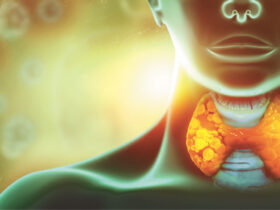Many people are experiencing what they’re now calling Post-COVID Stress Disorder. PTSD is affecting many frontline workers and communities at large.
 PTSD & COVID-19
PTSD & COVID-19
PTSD causes extreme side effects. Many individuals have severe nightmares, flashbacks, hyper startle responses, and loss of interest, severe anxiety and are often suicidal. Numerous military veterans with PTSD have issues with employment, violence, and relationships, brought on by severe flashbacks. However, in our current state of affairs, more people are experiencing PTSD. The pandemic has brought fear, despondency, anxiety and death to our families and friends. The ongoing stress that is attributed to the unknown, losing a business or job, financial distress, lingering health symptoms, marital discourse, cabin fever, etc., is making PTSD a much more common condition.
Many people who suffer from PTSD have difficulty sleeping. They also feel detached and estranged, which can lead to mental imbalance and in many cases causes difficulty with daily living activities, which can lead to job loss or permanent disability.
The standard treatment options for PTSD are antidepressant medications. Some of the most widely known drugs prescribed are Prozac, Lexapro, Zoloft, and Oxycontin. The classes of these medications play a role in how the neurotransmitters affect the mood by improving your state-of-mind and creating a more peaceful, cheerful spirit, by extinguishing the brain’s transmitters. The problem is these drugs are highly addictive, have adverse side effects, and also in many cases, show signs of cognitive decline in long-term use.
The other issue with standard medications is that they more often than not, become ineffective and are unable to reverse feelings of severe depression. This is called treatment-resistant depression.
Ketamine
Over the past ten years, Ketamine has been studied in patients with severe depression and PTSD. A rapid instantaneous effect takes place immediately upon the drug being dispensed intravenously. When a well-trained physician administers ketamine, it can help with symptoms like moodiness, chronic pain, decreased concentration, low self-esteem, impaired sleep, decreased sexual desire, diminished appetite and can even alleviate suicidal thoughts.
During the treatment, the initial infusions usually take place over approximately two weeks with six infusions that are administered every other day.
In parts of the brain that control mood and emotions, ketamine infusion creates new connections in the brain. These new neurological connections help the brain to send positive signals to the psyche, along with beneficial physical conditions to the body. The effect is notable within hours, but most patients report the results are instantaneous. These astonishing changes can be seen on brain scans and imaging, and the results are long-lasting.
Standard PTSD Medication’s Adverse Reactions
• Nausea
• Anxiety
• Weight gain
• Loss of sexual desire
• Severe fatigue
• Inability to focus
• Sleep disturbances
• Dry mouth
• Vision issues
• Constipation
• Forgetfulness
• Ineffective in treating PTSD Symptoms
Ketamine impacts mood, anxiety and alleviates pain, which can result in positive treatment outcomes for the following disorders:
• Severe or Chronic Depression
• Post-Traumatic Stress Disorder (PTSD)
• Chronic Inflammation and Pain
• Bipolar Disorder
• Obsessive Compulsive Disorder (OCD)
• Post-Partum Depression (PPD)
• Produces Rapid Onset of Neural Connections
Dr. Stephen Reichbach states, “In our opinion, IV Ketamine infusions are the gold standard for patients with severe mood disorders or those suffering from chronic pain. IV ketamine provides 100% bioavailability meaning that 100% of the drug administered, gets where it needs to go (the brain). This provides easier titration and a higher likelihood for a positive response. At the end of the day, the out of pocket cost to the patient may be more than the IV infusions depending on an individual’s insurance coverage, not to mention the time convenience advantage for the patient of the IV ketamine infusions.”
Steven Reichbach, MD, Board-Certified Anesthesiologist, specializes in pain management. For more information, please contact their office today at 941-213-4444, or visit their website at findpainrelief.com.
Gulf Coast Ketamine Center
2415 University Parkway, Building #3,
Suite 215, Sarasota, FL 34243
941-213-4444 | www.findpainrelief.com







